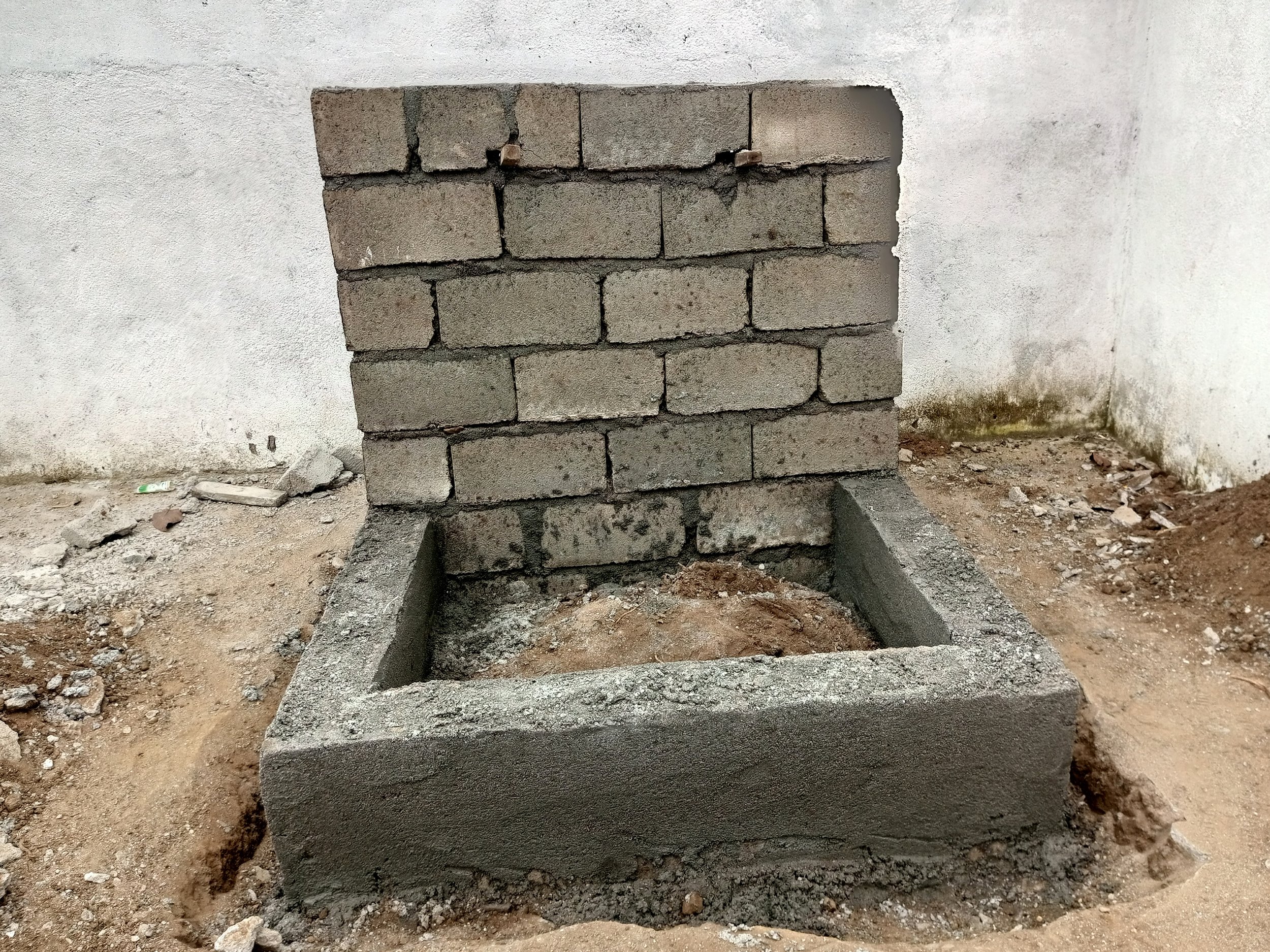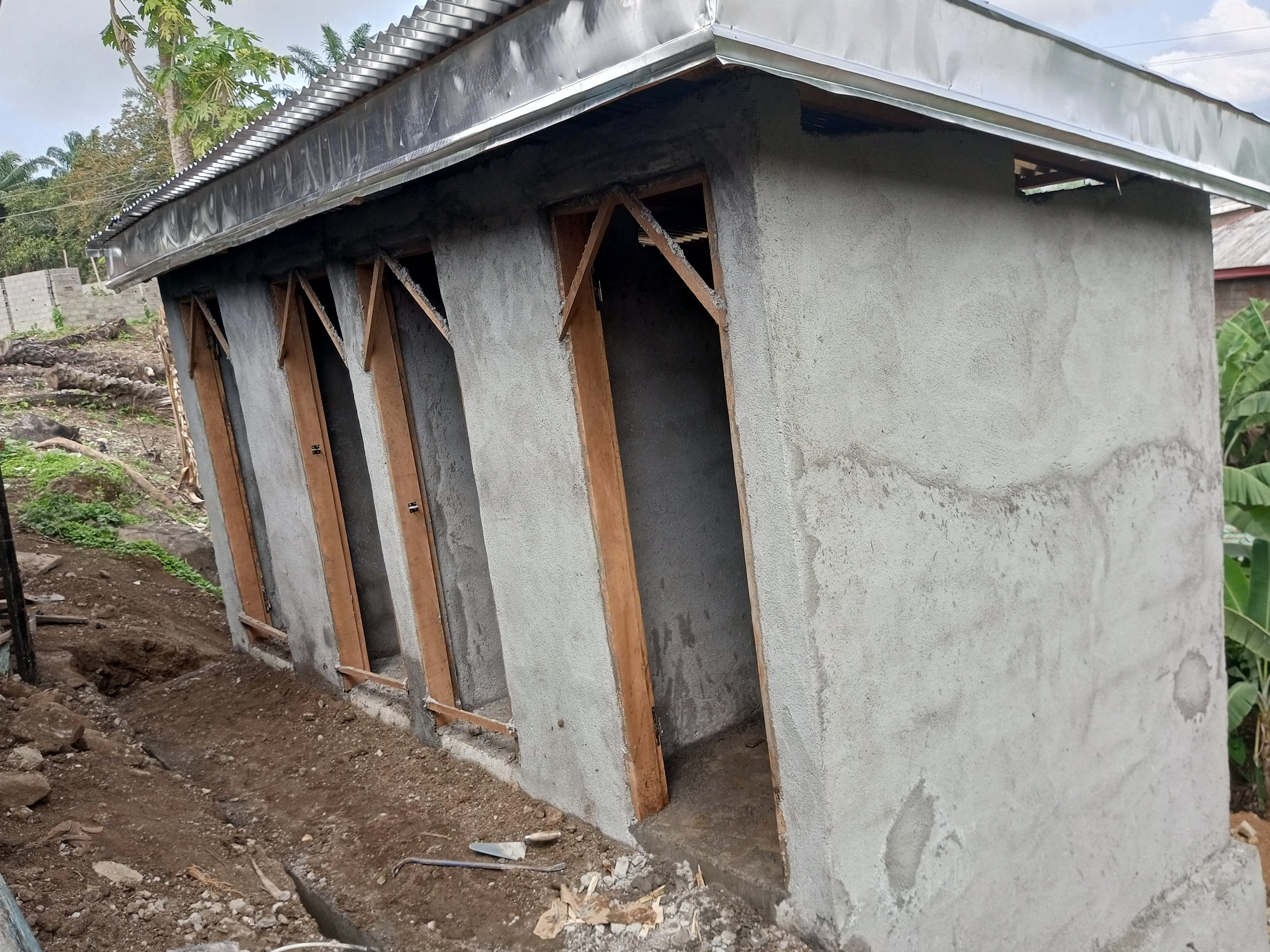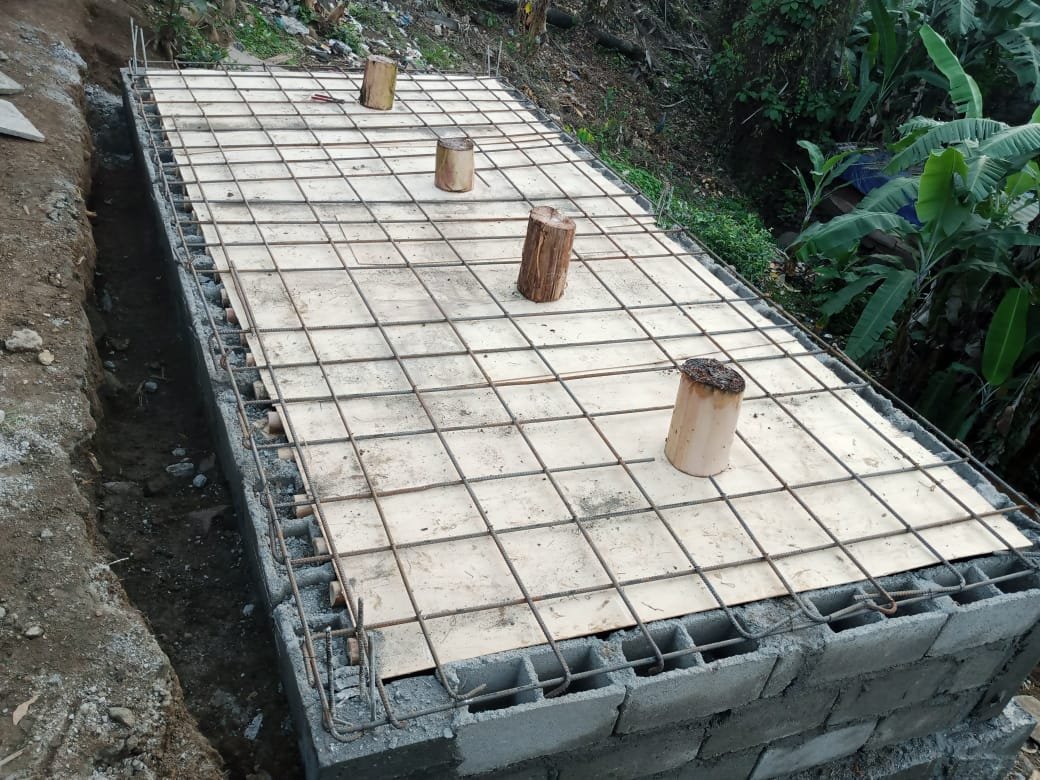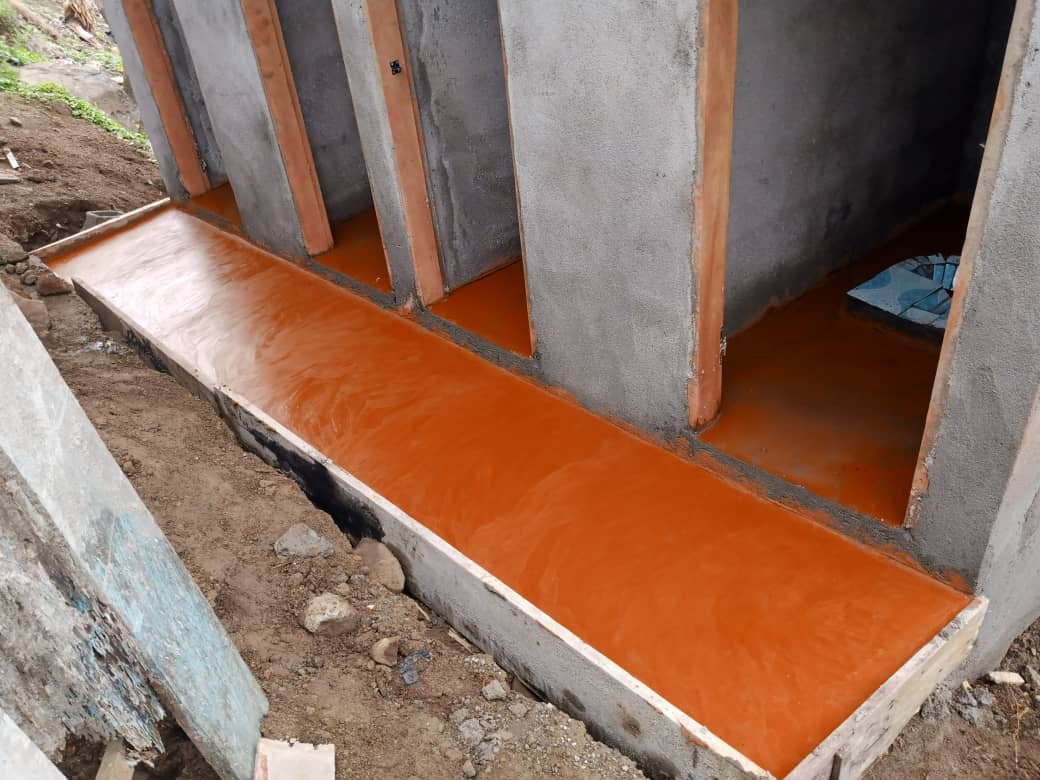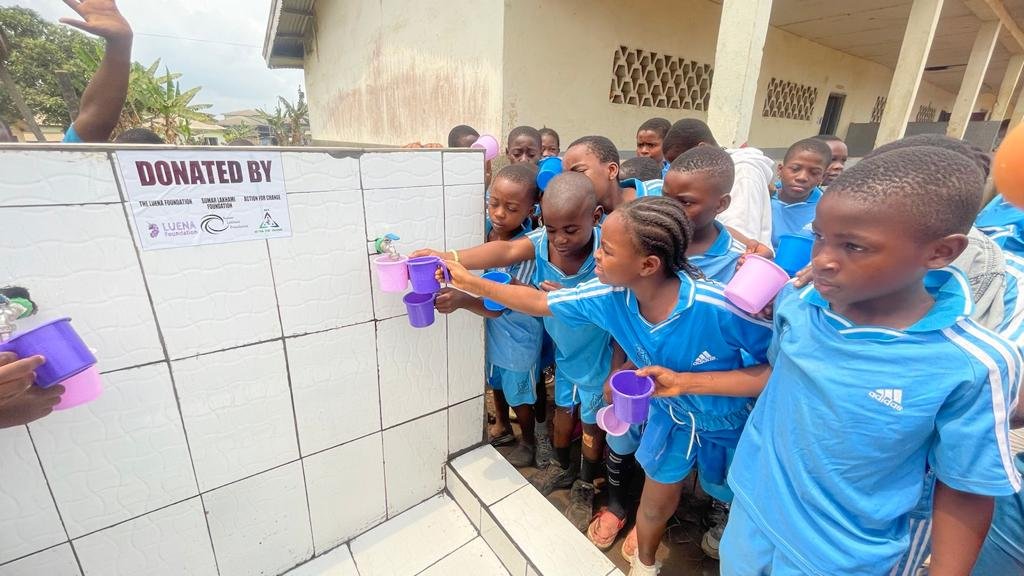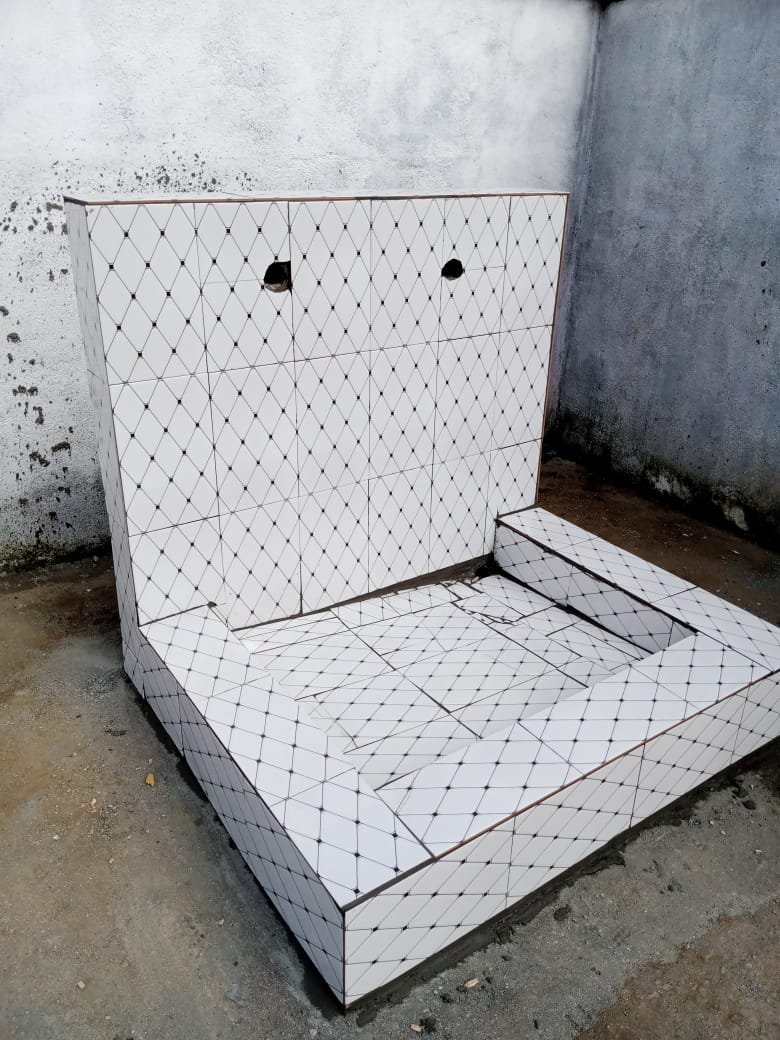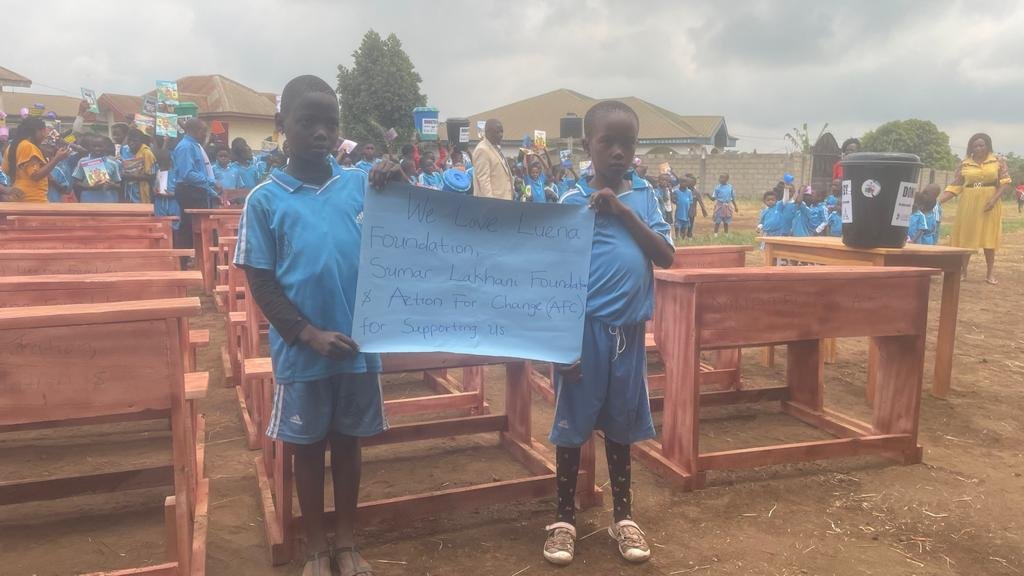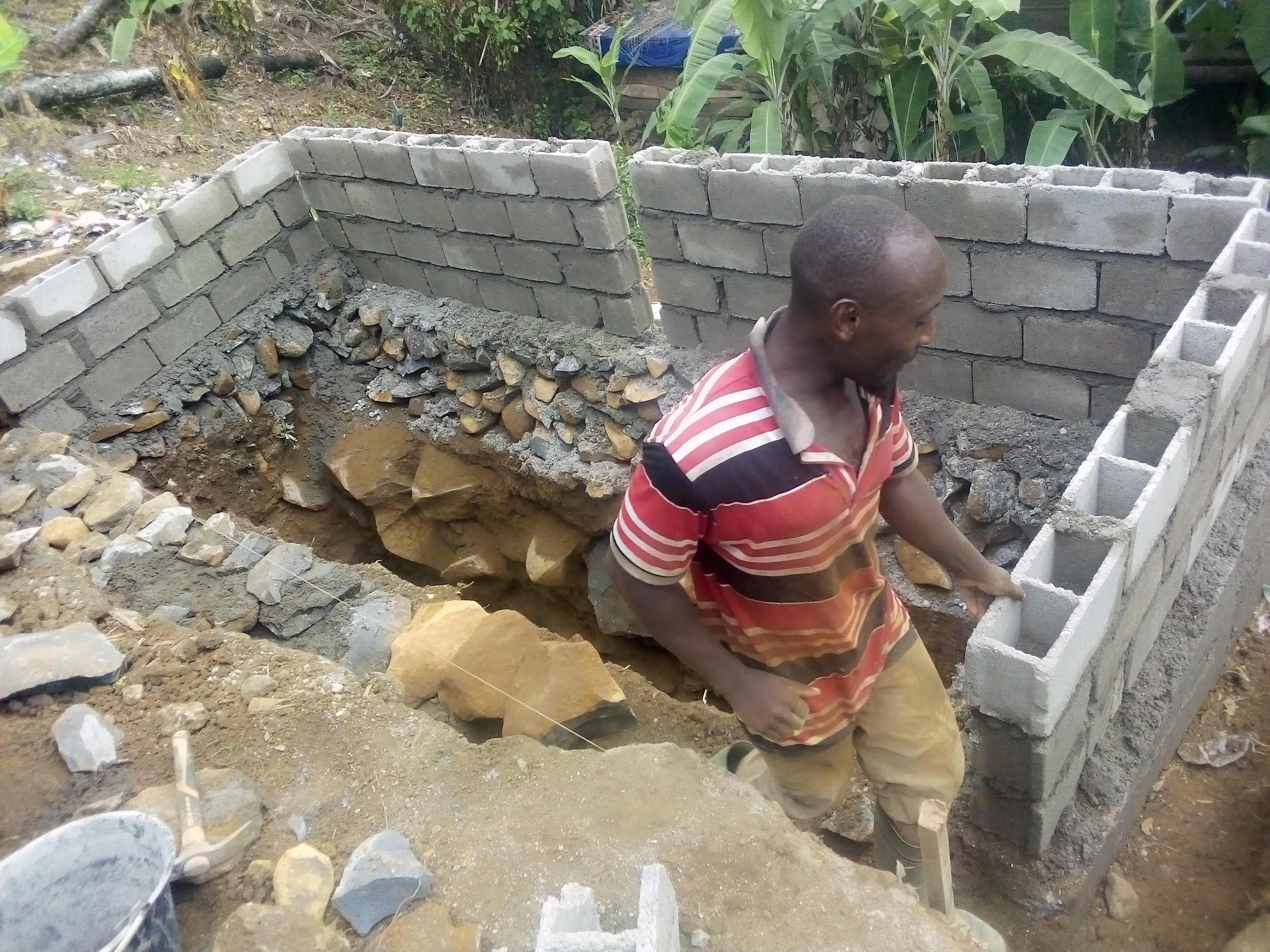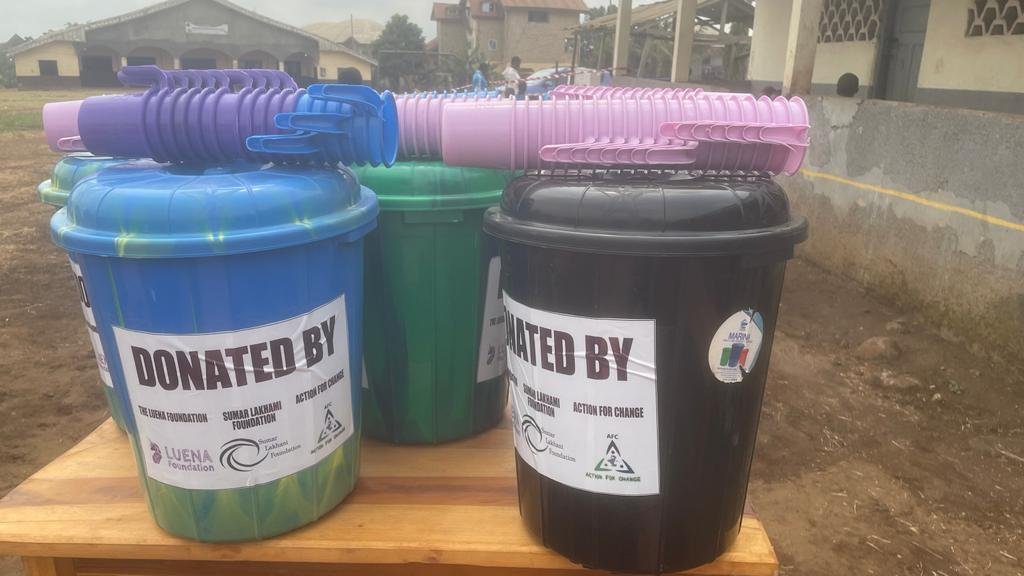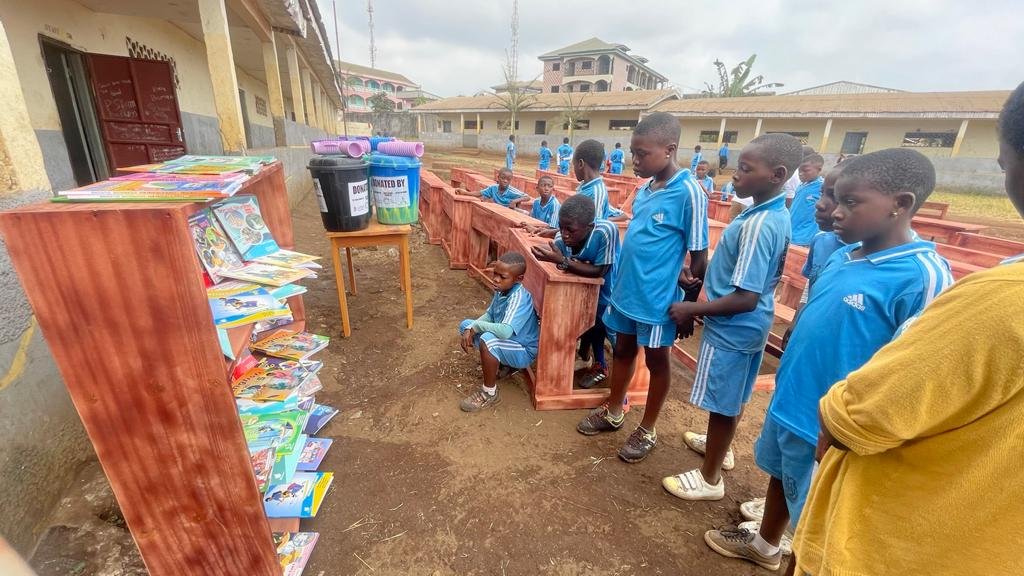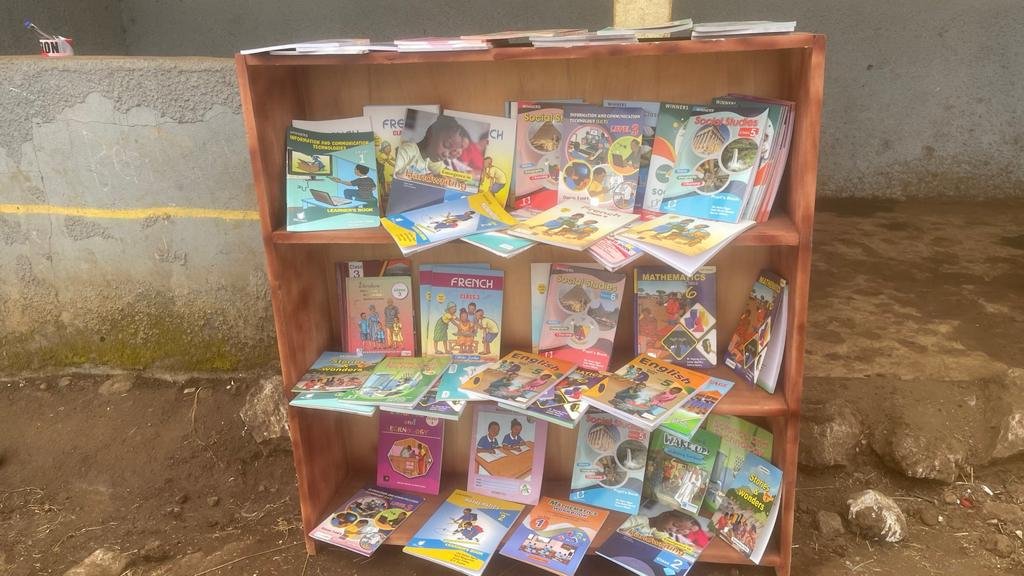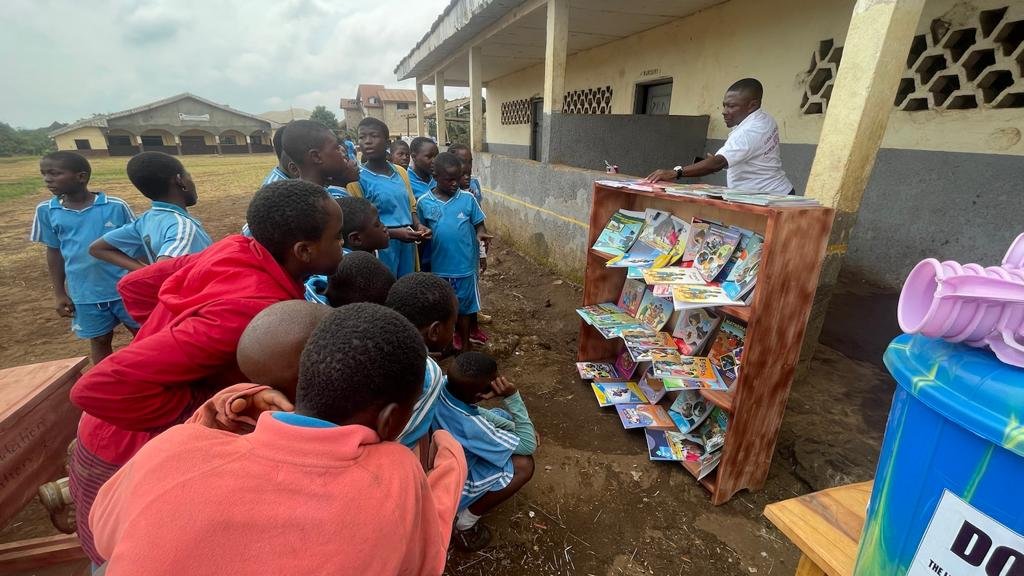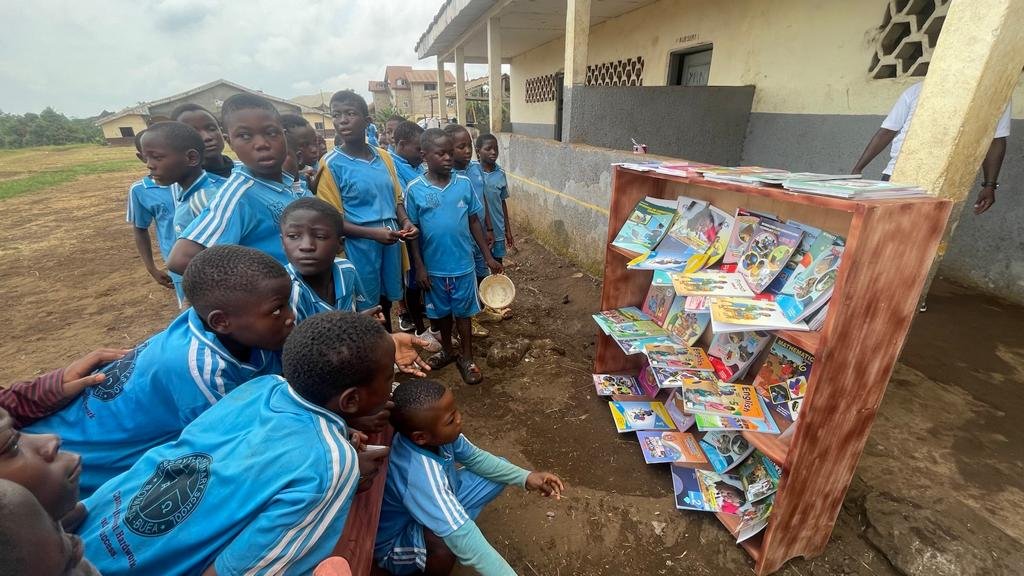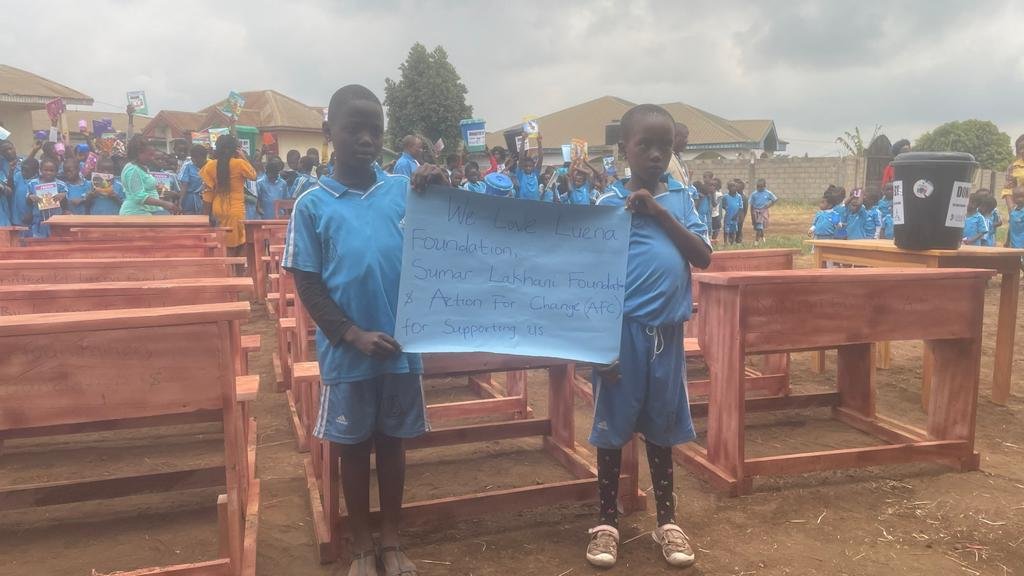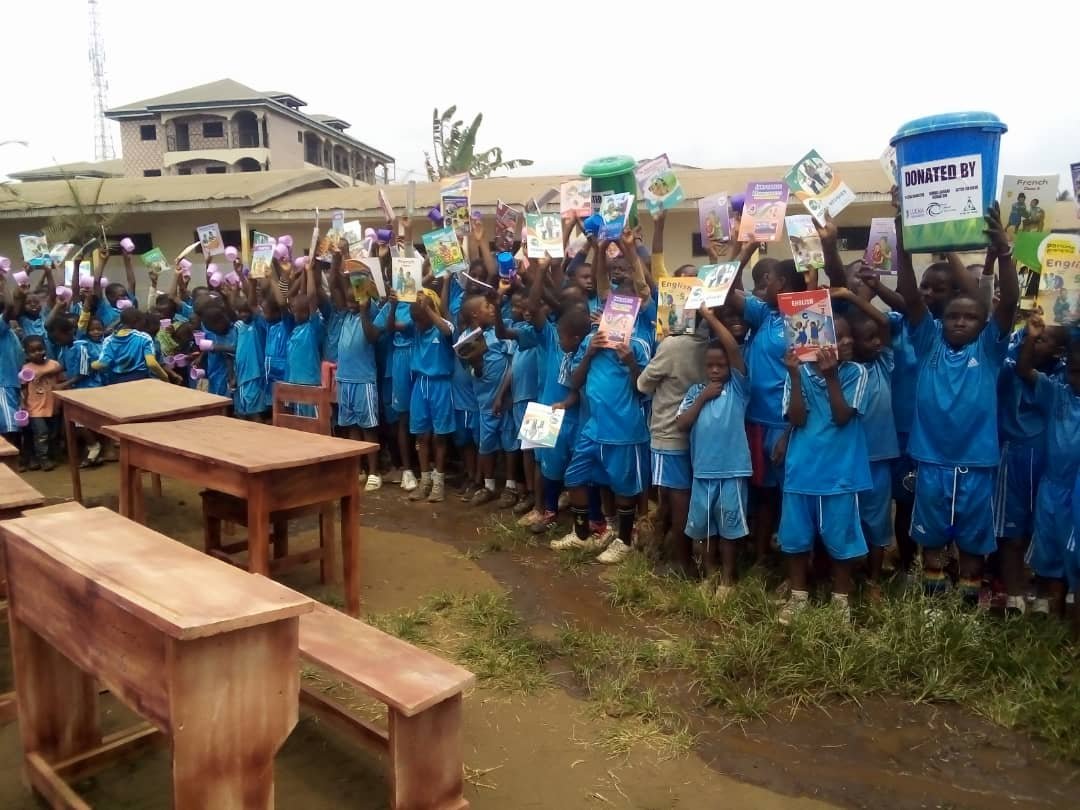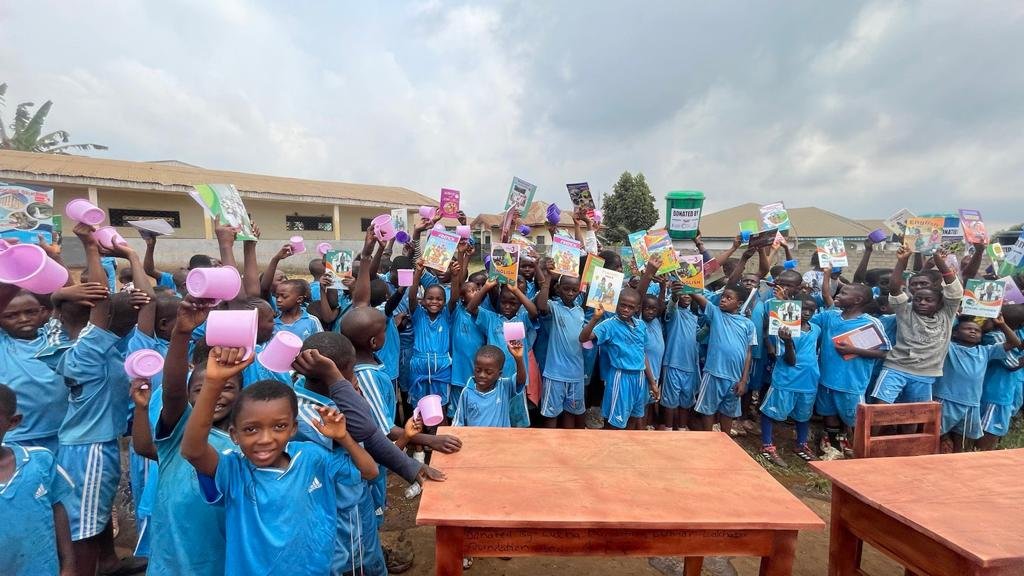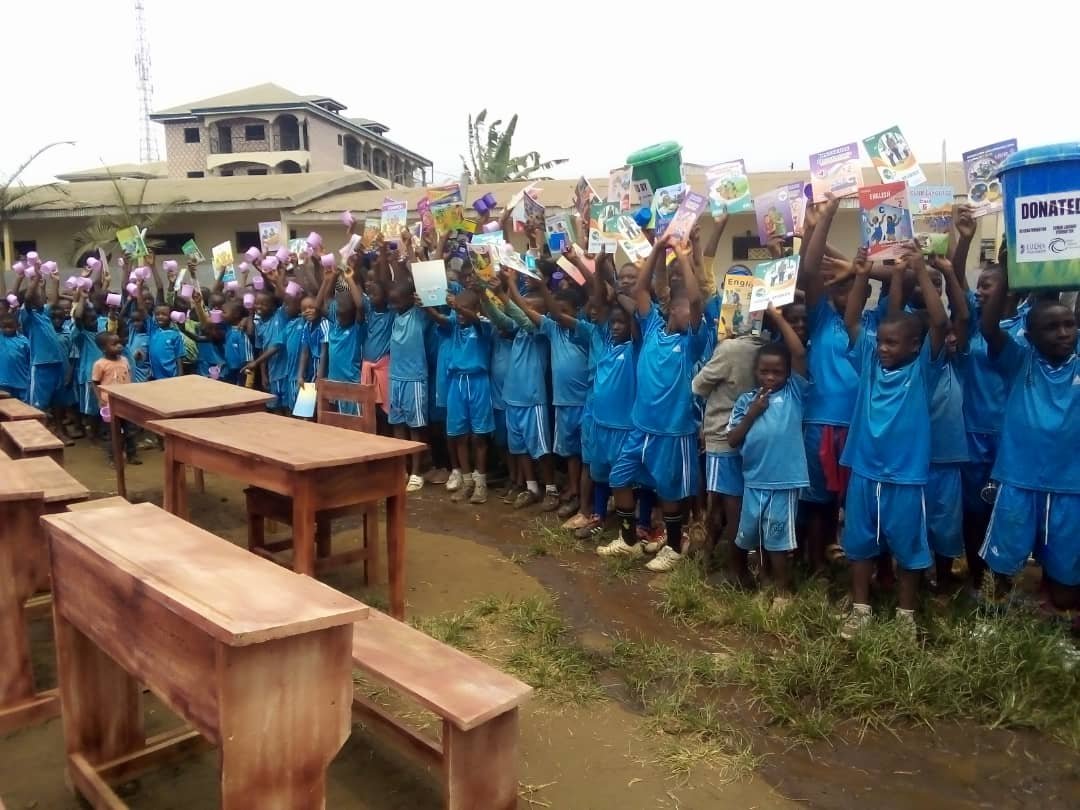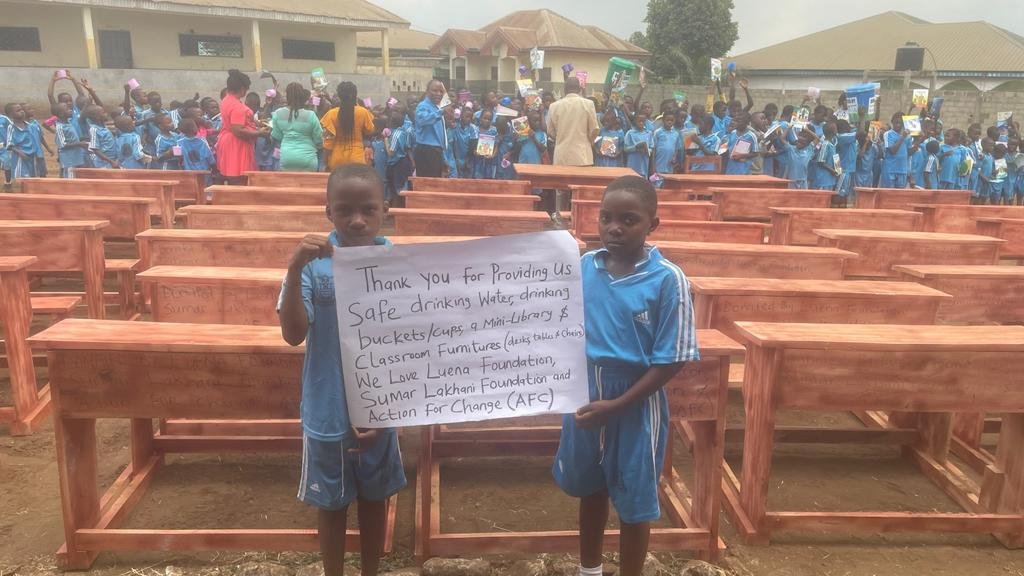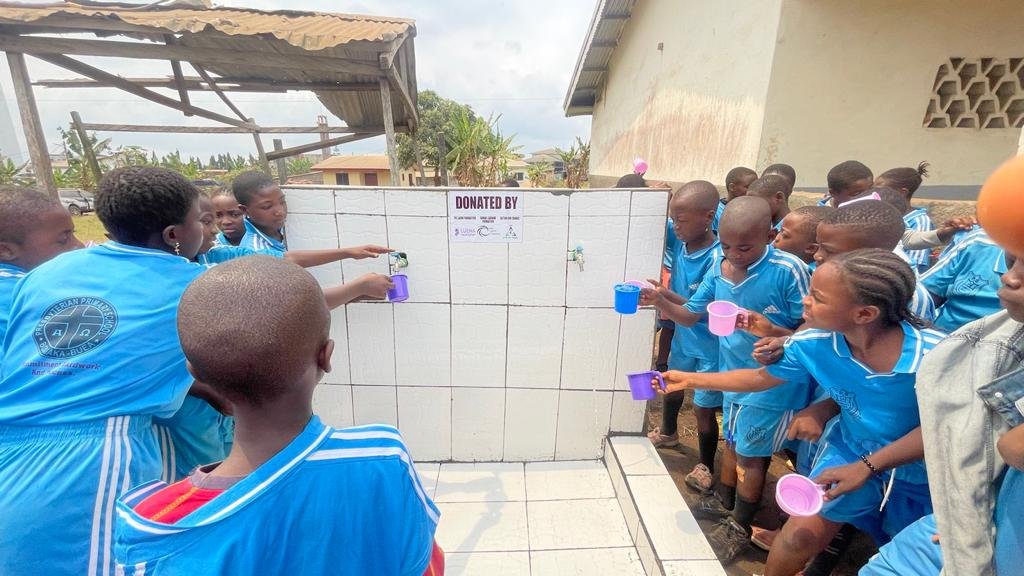Bolifamba School Hygiene and Sanitation Facilities
Cameroon
May 2023
Local Partner: Action for Change
Project Proposal for Funding to Luena Foundation & Sumar Lakhani Foundation
Project title: Quality education, hygiene and Sanitation project
Location of Project: St Veronique nursery and primary school Bolifamba
Requesting organization: Action for change (AFC)
- E-mail Address: actionchange07gmail.com
- Tel: (+237) 675936947/653306947
- Website: www.actionchangeafc.org Brief history of the organization:
Action for change (AFC) is a non-profit, non-political, non-governmental but a development driven organization which started in 2012 as an informal voluntary group. It was later constituted and registered on November 19, 2015 with Registration No: 039/D14/5/871. The goal of AFC is to empower and sustainably improve the living conditions and the environment of children, women, vulnerable youths and disadvantaged rural and indigenous forest communities in marginalized southwest English speaking region of Cameroon with focus on holistic education, community development, water, hygiene and sanitation, environmental protection and the promotion of livelihood initiative for poverty alleviation and economic autonomy for the less privilege. Our policy of participatory approach drives our actions. We strive to maintain fairness, equity and no discrimination on the basis of sex, tribe, origin, race or religion.
Some of our recent achievements include: Widow’s vegetable garden project for better health, hygiene and sanitation project in Mombo primary school, enhancing education, hygiene and sanitation project in Soppo primary school, library project in Bolifamba secondary school, maize farming project in Bulu village community, vulnerable girls baking project in Bomaka village community, Health Education project in inter-comprehensive high school, Muea primary school project, Kombo community primary school hygiene and sanitation projects, Ndongo primary school project and Dibanda community primary school project, Ebamuke nursery and primary school project, Renovation of a toilet facility and extension of safe drinking water project at Millennium educational foundation nursery & primary school. Currently we are establishing 500 birth certificate to 500 IDPs children in six primary schools in Buea and Tiko community. This project is sponsored by Luena foundation and Global pearl.
Our partners include The Luena Foundation (USA), World Connect (USA), One World Foundation
(Bulgaria), Purley Overseas Trust (POST) in UK, Share Institute (USA), The Pollination Project (USA), Peartree Development Fund (UK), Rome 1% Development Fund (Italy), Harbinson Charitable Trust (UK), Trust 2000 (UK), Kitchen Table Charities Trust (UK), The Mercury Phoenix Trust (UK), Andrews Foundation(USA), Earth rising foundation (USA), All Sky foundation (USA), One World Fund (Ireland),
Students for Children (Netherland), Kootje Foundation (Netherland), Port Authority Douala (PAD) and EPENJA Development fund. We also collaborate with local administrative authorities, other NGOs and Community Based Organizations and have a cordial relationship with indigenous groups we seek to serve as well as with other stakeholders in development
The initiators of the project:
The local community are the initiators of the project through the management of the school (Parent
Teacher Association and the school administration). We receive their appeal letter for assistance on the
18th of November 2022. Among the numerous problems face by St Veronique nursery & primary school Bolifamba, the need for a toilet facility, safe drinking water, wash hand facilities and access to text books and other basic school materials remains a top priority in the school for the benefit of poor, needy and internally displace children attending the school.
The present situation that the project seeks to improve:
Quality education, hygiene and Sanitation project is located in St Veronique nursery and primary school in Bolifamba village community. Bolifamba community is a typical slum community in the south west region of Cameroon, with above 95% of households living below the UN poverty line. The community has a growing population of over 7000 inhabitants who are poor peasant farmers with very low income. Women and children constitute a greater majority of the population. Bolifamba village community is considered as one of the poorest communities in Buea sub-division and a host community for thousands of internally displaced persons, who have fled from other parts of the region affected by war or insecurity. Their living conditions are very deplorable as families have to manage a single room for survival. Those mostly affected are women and children who have fled into the village for the safety and education of their children. In most communities in the south west just like Bolifamba rebels are in support of community schools against government schools. This is the main reason why in most schools children come with assorted dresses without wearing uniforms.
St. Veronique nursery & primary school is one the primary schools in the community, which is being attended by very poor and needy children, aged 4-12 years, many of whom are orphans, girls and internally displaced children whose parents/guidance cannot afford fees in other schools in the community. Indeed, the establishment of the school has facilitated school attendance for school going age children who had no access before, especially the less privileged children. A total of 286 pupils attend St Veronique nursery & primary school Bolifamba, of which we have 172 girls and 114 boys based on the head teacher. The school is managed by the poor peasant community (Parent Teacher Association & the school administration), who are doing their best to ensure these children have access to education by struggling to raise funds to pay six (6) teachers employed to teach in the school.
The poor peasant community and the management of the school is unable to raise enough funds to construct a toilet facility and provide safe drinking water at the school for poor, needy and internally displaced children attending the school. Presently the school has no toilet facility and kids are advised to empty their bowels at home.
The absence of a toilet facility and safe drinking water in school has caused many children to defecate in nearby farms, corridors and pavements. Some defecate on their body, especially the very young, thus making the school environment nasty and unconducive for learning. Children sometimes abandon lessons in search of the precious liquid, water some 1.5km away from the school. This is affecting the teaching learning process in school negatively. Children end up drinking contaminated water used by domestic animals around the school campus.
Going to nearby farms to defecate also exposes the pupils to the risk of being bitten by a snake. The poor hygiene and sanitation and lack of potable water in school have often resulted in water related diseases like diarrhea and cholera. From our need assessment, there is the possibility of extending safe drinking water to this school as a water scheme already exists which is situated about 1.5km from the school.
Equally, 90% of children (mostly orphans, girls and internally displaced children) attending St Veronique nursery and primary school don’t have basic school items. It is common to see kids in class with just a single exercise book serving three different subjects with no pen, no text book, no pencil or eraser. Some come to school without an exercise book or a pen to write with, due to poverty. This has made teaching and learning difficult to both pupils and teachers at St Veronique nursery and primary school.
It is against this premise that Action for change intends to seek a long-lasting solution to the above problems by constructing a gender sensitive pit latrine of four compartments, extend safe drinking water, provide drinking cups, buckets and provide text books and other didactic materials at St. Veronique nursery and primary school. The drinkable cups and buckets will help to avoid scrambling around the tap to drink directly from it and hence ensure the long term sustainability of the tap heads. Along with the construction of the latrines and supply of safe drinking water to the school, classes on personal hygiene will be carried out to spread awareness on water-related diseases.
Justification of the project:
The project is needed as it will enhance education in St. Veronique nursery and primary school through the provision of different text books and didactic materials in school Also, the project is necessary because it will enhance hygiene and sanitation at St. Veronique nursery and primary school, thus reducing the rate at which poor, needy and internally displaced children attending St. Veronique nursery and primary school contract water related diseases like cholera and diarrhea due to poor hygiene and sanitation. With the availability of safe drinking water in school, children will now concentrate on their lessons instead of abandoning classes in search of the precious liquid (water) some kilometers away from school. More so, the project is necessary because children will now defecate in a constructed latrine than in pavement or corridors.
The Aim and Objectives of the Project:
The aim of the project is to enhance education through the provision of different text books and other didactic materials, eliminating all forms of preventable diseases and deaths resulting from poor hygiene and sanitation and drinking of contaminated water through the construction of a gender sensitive toilet and extension of safe drinking water at St. Veronique nursery and primary school. The specific objectives of the project are:
• To construct a gender sensitive sanitary pit latrine;
• To extend safe drinkable water to the school;
• To reduce the incidence of cholera outbreak in the school community due to poor hygiene and sanitation;
• To eliminate bad ordour and ensure a conducive learning environment in the school.
• To provide access to textbooks and other basic vital school materials;
• To donate basic school items to vulnerable and needy children attending St. Veronique nursery and primary school;
• To enhance the teaching learning process in St. Veronique nursery and primary school.
Expected Outcome of the Project:
The following outcomes are expected to be achieved at the end of the project:
• Pupils will learn in free polluted atmosphere;
• Incidence of pupils going to defecate in streams and nearby farms prevented;
• Bad and unpleasant smell emanating from school campus stopped;
• Interruption of lessons in search of drinkable water stopped;
• The possibility of cholera outbreak and other water related diseases reduced;
• To provide access to textbooks and other important basic school materials to 286 pupils and their six teachers;
• Basic school materials donated to less privileged children attending St. Veronique primary school;
• General academic performance improves.
Beneficiaries of the project:
The direct beneficiaries of the project are 286 poor and needy children attending St. Veronique nursery and primary school and their six (06) teachers. Indirectly the project will benefit over 2000 people most of whom are parents/guardians of these poor and needy children attending St. Veronique nursery and primary school. Also, the project will benefit the future generation of the school.


